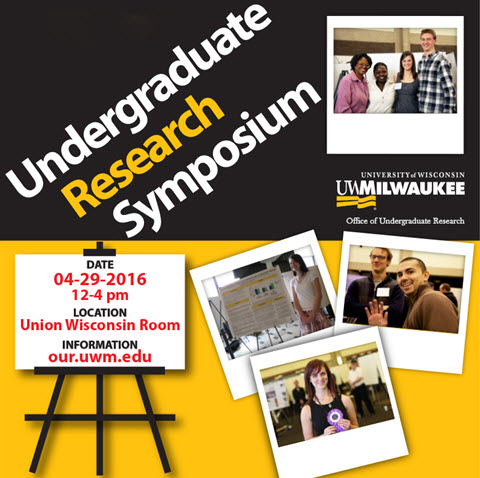We Asked, They Told: Exploring LGBT+ Relational Experiences in the Post
Mentor 1
Erin Parcell
Mentor 2
Benjamin Baker
Location
Union Wisconsin Room
Start Date
29-4-2016 1:30 PM
End Date
29-4-2016 3:30 PM
Description
This study aimed to investigate the experiences of both active duty and veteran LGBT+ U.S. military members and, if applicable, their significant others via interview-based, qualitative inquiry. We recorded, transcribed, and analyzed in an effort to identify communicative themes surrounding LGBT+ relationships and serving before, during, and after the “Don’t ask, don’t tell” (DADT) era. Under DADT, non-heterosexual individuals could have been barred or discharged for being open or unwillingly outed for their sexuality. We sought to understand the experiences of LGBT+ U.S. military personnel regarding their experiences with those inside and outside the military. While a large amount of research has been performed on non-LGBT individuals, very little has focused upon the relationships and daily experiences of LGBT members and their spouses. This is especially pertinent with the repeal of DADT. I have been transcribing these interviews, as well as started categorizing and organizing the data obtained. I will present some preliminary themes emerging in their stories.
We Asked, They Told: Exploring LGBT+ Relational Experiences in the Post
Union Wisconsin Room
This study aimed to investigate the experiences of both active duty and veteran LGBT+ U.S. military members and, if applicable, their significant others via interview-based, qualitative inquiry. We recorded, transcribed, and analyzed in an effort to identify communicative themes surrounding LGBT+ relationships and serving before, during, and after the “Don’t ask, don’t tell” (DADT) era. Under DADT, non-heterosexual individuals could have been barred or discharged for being open or unwillingly outed for their sexuality. We sought to understand the experiences of LGBT+ U.S. military personnel regarding their experiences with those inside and outside the military. While a large amount of research has been performed on non-LGBT individuals, very little has focused upon the relationships and daily experiences of LGBT members and their spouses. This is especially pertinent with the repeal of DADT. I have been transcribing these interviews, as well as started categorizing and organizing the data obtained. I will present some preliminary themes emerging in their stories.


